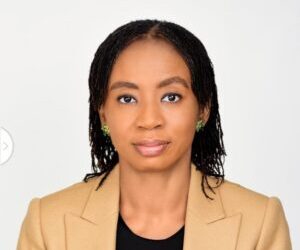The preparation for a pension law in Nigeria consumed thousands of man hours, globetrotting, and assembling of pension experiences of other climes especially those of South American countries- Chile, Brazil and others, all these were done by the government of President Olusegun Obasanjo, to avoid a repeat or relay of the over N1tr debt hanging on the federal government.
With a water tight commitment to establish a pension industry that is devoid of the experiences of the past secured in the Presidency and put in the high impact file, the crafters of what shall be the coming pension act, had a common focus that one of the pillars of the new law that would emerge would be a board that was diverse, pooled from staggering stakeholders, a rainbow coalition of representatives of institutions of immense influence. All these inputs secured in the executive bill were handed over to the National Assembly intact. This was indeed injected into the maiden but repealed Pension Reform Act 2004 and re enacted in the existing Pension Reform Act 2014.
It’s therefore no fluke that the board membership which is set at 16, has ten of them drawn from institutions, representatives of critical stakeholders in the pension industry, whose inputs are critical in formulating and providing general policy guidelines for the discharge of the functions of the Commission; monitor and ensure the implementation of policies and programmes of the Commission. They are to carry out such other functions as necessary or expedient to ensure the efficient performance of functions of the commission under the Act.
Going by the outlandish stream of responsibilities of the PenCom board, the absence of the board has been a setback to the pension regulator, likewise the state of limbo of the executive committee, which has made the executive work room inactive until the active button is switched on by a reconstituted board.
It was in this wise the President, M Buhari, sent nominees for reconstituted PenCom board to the Senate for confirmation. The list includes the Acting Director-General, Mrs Aisha Dahir-Umar and four commissioners and of course, the chairman.
Putting a good tick on the current management, a former board member and executive director, Centre For Pension Right Advocacy, Ivor Takor, said despite the drag of the absence of board and executive committee, the Acting DG and the management team has been able to move the pension industry forward through effective regulation and supervision , ensuring increased level of compliance by private sector employers; while small and medium enterprises are increasingly embracing the CPS, expanding the coverage of the CPS through the Micro Pension Plan, which as at June 2020, had 51,974 informal sector workers, contributing N41.1m. Besides, RSA registration grew to 9,039,727 as at the end of second quarter, growing pension assets to N11.08tr. He also said the Commission has been firm in maintaining the engagement of fit and proper persons insulating the industry from fraud and maladministration thereby securing pension funds and assets.
On the dust in the Senate over Acting DG converting to the de facto DG, which the opposing Senators called breach of the provision on the appointment of DG, Takor said the the names submitted by the President was in accordance with the provision of the PRA Act 2014, and the constitution of the federal republic of Nigeria.
The argument against the replacement of former PenCom DG Mrs Chinelo Anohu-Amazu, was that since she had not served her full term, a replacement to complete her term as they interpret the specific section of the 2014 pension law, was that any replacement should come from her geo-political region.
Spokesperson for PenCom, Mr. Peter Aghahowa, diffusing the argument said: “Section 19(3) of the PRA 2014 provides that chairman, the Director General and commissioners shall be appointed by the president subject to confirmation by the Senate. Similarly, section 171 of the 1999 constitution (as amended) vests in Mr President the power to appoint persons to hold or act in certain offices and to remove such persons. These offices include heads of all federal government extra ministerial department, however designated.”
Aghahowa described as misleading “the argument that Mrs. Amazu’s replacement as DG of PenCom must come from the Southeast zone to complete her remaining term.” However, contrary to this submission, he said a careful review of the relevant provisions of the PRA 2014 would lead to the following conclusions:
“A reading of both subsections (1) & (2) of section 21 of the PRA 2014 indicates that they consistently use singular phrases such as, “a member” ; “a vacancy”; “a replacement” ; immediate past member that vacated office etc. Accordingly, it is submitted that the correct interpretation of S 21 (2) of the PRA 2014 is to hold that it addresses only cases of occasional vacancies created by the exit of individual members of the board of PenCom as enumerated in subsection (1) of the same section, rather than where the whole board is dissolved or all executive management are removed by Mr president.”
The Head Corporate Communications, said without prejudice the commission rests its case on the overreaching provision of S 171(2) of the 1999 constitution (as amended.)








































